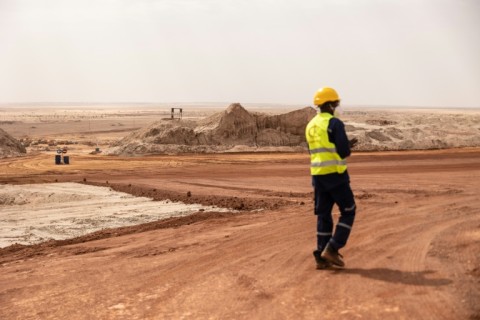Introduction
In recent years, the Sahel region of Africa has witnessed a significant shift in power dynamics, particularly following a series of military coups. The new military regimes in countries like Niger, Mali, and Burkina Faso have increasingly targeted foreign mining companies, asserting greater control over their national resources. This article explores the implications of these actions, the motivations behind them, and the broader geopolitical landscape shaping this trend.
The Nationalization Wave
The nationalization of foreign mining assets has become a hallmark of the military juntas that have taken power since 2020. A recent example is Niger’s decision to nationalize the local branch of French uranium giant Orano, a move that underscores the growing tension between the Sahelian governments and foreign corporations. Orano, which is predominantly state-owned, had already acknowledged losing operational control of its subsidiary months prior to the nationalization announcement.
In Mali, the situation is similarly fraught. Canadian mining giant Barrick Gold is embroiled in a contentious dispute with the military government over a new mining code that demands substantial back taxes. The military’s aggressive stance has led to Barrick losing control of Loulo-Gounkoto, the largest gold mine in the country, further illustrating the tightening grip of the juntas on foreign investments.
The Tug-of-War with Foreign Firms
The confrontations between the Sahelian governments and foreign mining companies have escalated into a tug-of-war. In November 2024, Malian authorities arrested the director of Australia’s Resolute Mining, along with two employees, only to release them after the company agreed to pay $160 million to the junta. Other firms, such as B2Gold and Robex, have also found themselves negotiating settlements to resolve tax disputes, highlighting the precarious nature of foreign investments in the region.
Burkina Faso has not been exempt from this trend; in 2023, the government seized 200 kilograms of gold from a branch of Canada’s Endeavour Mining, citing “public necessity.” These actions reflect a broader strategy among the juntas to reclaim sovereignty over their natural resources, which they believe have been exploited by foreign interests for too long.
Sovereignty and Public Sentiment
The military regimes in Niger, Mali, and Burkina Faso are framing their actions as a necessary step toward reclaiming national sovereignty. They argue that the wealth generated from their natural resources should benefit the local population rather than foreign corporations. This narrative resonates with citizens who have long felt marginalized by the economic exploitation of their countries.
Jeremie Taieb, director of consulting firm Tikva Partners, notes that the juntas are tapping into public sentiment by portraying their actions as a liberation from Western dominance. This strategy not only bolsters their legitimacy but also helps them maintain power amid ongoing jihadist violence that has plagued the region.
The Economic Context
The economic stakes are high for these Sahelian nations. Niger is a significant player in the global uranium market, producing nearly 5% of the world’s supply. Gold mining is equally crucial for Mali, contributing a quarter of its national budget, while Burkina Faso’s gold production accounts for approximately 14% of its revenues. The juntas are leveraging these resources to fund their operations and combat terrorism, further justifying their aggressive stance against foreign firms.
Legal Battles and International Arbitration
In response to the nationalization efforts, foreign mining companies are seeking recourse through international arbitration. Barrick Gold has turned to the International Centre for Settlement of Investment Disputes (ICSID), while Orano has initiated lawsuits against Niger, accusing the junta of systematically stripping mining assets. These legal battles highlight the growing tension between the juntas and foreign investors, as both sides seek to protect their interests.
The Geopolitical Landscape
As the Sahelian governments assert their control over mining resources, they are also pivoting away from traditional Western alliances. The juntas have increasingly sought partnerships with countries like Russia and China, which are willing to provide military and economic support in exchange for access to valuable minerals. For instance, Mali and Russia recently began construction on a new gold refinery, while Moscow has deployed mercenaries to assist in combating jihadist threats.
This shift in alliances raises questions about the future of foreign investment in the region. While some analysts suggest that the legal instability may deter investors, others believe that the long-term potential of mining assets will continue to attract foreign engagement.
Conclusion
The nationalization of foreign mining companies in the Sahel region marks a significant turning point in the relationship between African nations and foreign investors. As military juntas assert greater control over their resources, they are reshaping the economic landscape while also navigating complex geopolitical dynamics. The outcomes of these confrontations will not only impact the future of mining in the Sahel but also the broader narrative of sovereignty and self-determination in Africa. As the situation evolves, the world will be watching closely to see how these nations balance their aspirations for independence with the realities of global economic interdependence.




